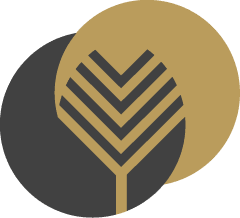
APS College
Overview
While childhood can be seen as a carefree time when children are free to have fun with few responsibilities, increasingly we see childhood as a time when children are confronted with many challenges. These challenges can become apparent in school settings or when parents are confronted with behavioural or mental health concerns. Increasingly, partly driven by learnings from COVID19, research is beginning to explore children's experiences and build better understandings about the impact of societal pressures, parenting practices, technology and a lack of play based learning. Presentations at emergency departments during and since COVID 19 relating to self harm, suicidality and disordered eating heightened this awareness.
The aim of this session is to explore how psychologists can better recognise early signs of distress in children, create spaces for children to have an opportunity to voice concerns and to effectively support parents to better understand their children's needs. A socioecological approach will be taken to explore the range of risk and protective factors which impact on children's mental health and wellbeing. Factors which are unique to children will be explored in terms of recognising needs and considerations when working with parents of young children. Ethical issues such as consent, assent. mandatory reporting and confidentiality will be explored as well as evidence-based interventions that are effective with children and their parents. Case examples will be worked through to consider what role parents might play in the interventions to ensure that children are well supported in a sustainable way.
A key goal of the session will be to assist psychologists to gain confidence in working with children and families through recognising the value of early intervention and the effectiveness of partnering with families to support children in various settings.
Learning Outcomes
Upon completion of this event, participants should be able to:
- outline key factors impacting on children's mental health and wellbeing
- describe how a socioecological model assist to understand ways to support children and their families
- recognise early signs of distress in children
- respond to ethical issues in working with children and families
- outline considerations when working with parents and carers
Presenter(s)
Dr. Lyn O'Grady
About the presenter(s)
Dr. Lyn O'Grady is a Community Psychologist with a particular interest in the mental health and wellbeing of children, young people and their families. She currently works in private practice in Melbourne, is a Psychology Board approved supervisor, writer and trainer. She began her career working with parents during the 1990s, spent a decade working in various roles in schools, including as a school psychologist, managed the KidsMatter project for the Australian Psychological Society and has authored a book for parents titled Keeping our Kids Alive, Parenting a suicidal young person. She is currently working on another book for parents of younger children aimed at building hope.
Notes
Target Audience
This event is aimed at psychologists with an interest in exploring community psychology principles in working with children and their families.
Duration of Access
This event will be recorded. The recording will be emailed to all registered within 2 weeks post event and available for viewing up to 90 days.
CPD
It is up to attendees to assess and determine how learning from this event aligns with the requirements of their learning plan. The providers accordingly do not make any representation that the event counts towards attendees’ CPD learning requirements. If an attendee determines themselves that the learning they complete aligns to their learning plan, then they can decide to count those hours towards their CPD requirements for the registration cycle.
The information in this presentation has been prepared in good faith and for educational purposes only. Therefore, the information is general in nature and should not be relied upon in the treatment of any condition and you should seek your own independent professional and/or legal advice concerning any specific issue. The APS accepts no responsibility for any errors, omissions or decisions relating to the information. The content should not be reproduced without permission or unless permitted by law.
If you are experiencing registration difficulties please contact APS Events Support.